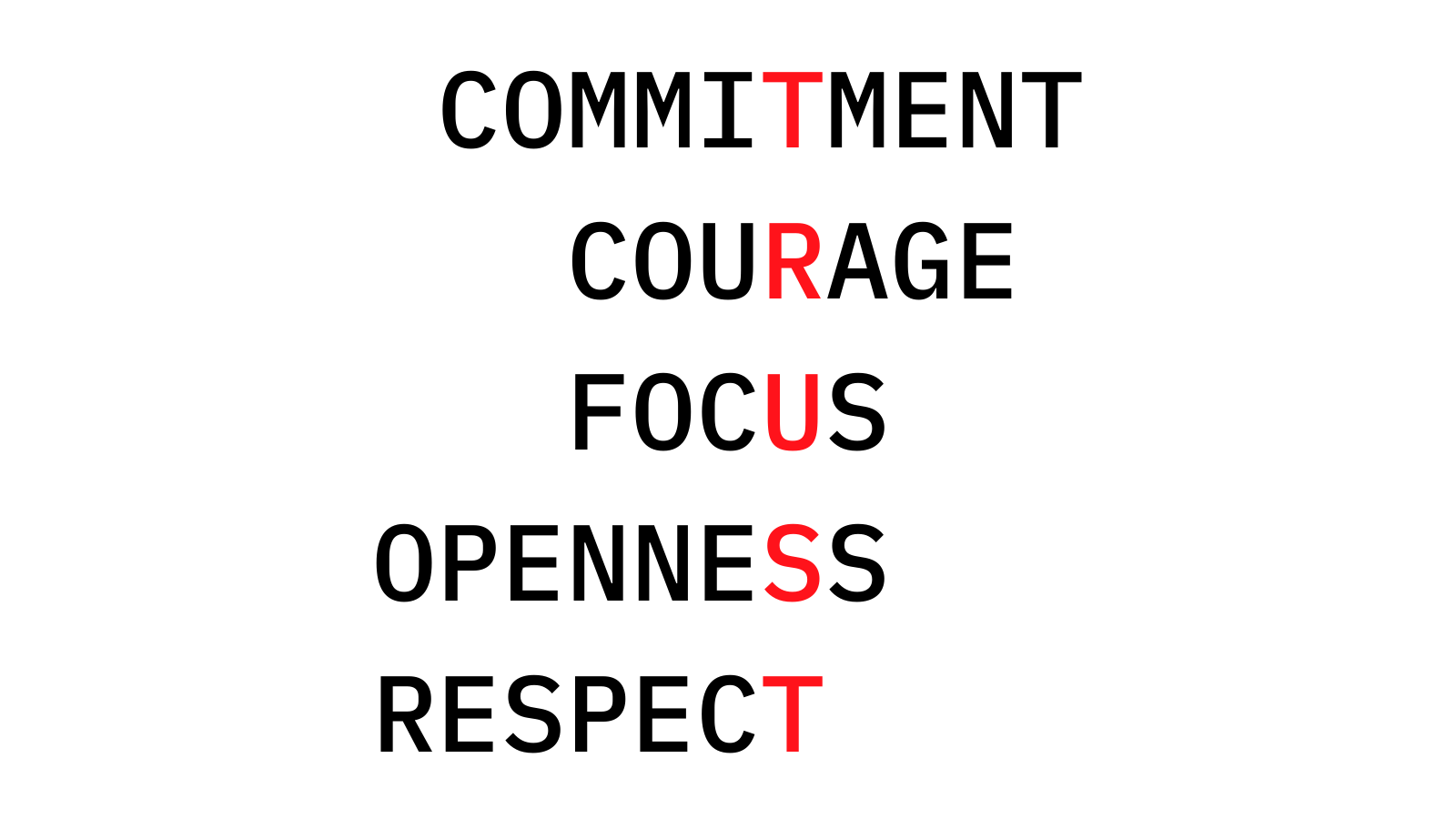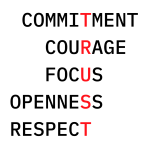Scrum have five values. Isn’t that enough? To many it may be enough and even a little too much. To me, there is a value missing. And that is Trust.
Once, in the middle of a presentation about Agile values and principles, I was told by an executive: ”We do not need to hear about values or principles, we need better practices. Tell us which practices to use!” That gave way to an animated discussion resulting in me and my colleagues being kicked out of the assignment. You could argue that the executive was lacking in respect. What was really lacking in my opinion, was trust. Trust that the organization would be able to improve on their own once given direction and support, trust in values and principles, and trust in the presenter (me in this case).
If you are familiar with Scrum you should be aware of the five Scrum values: Commitment, Focus, Openness, Respect and Courage. In my opinion, every organization implementing Scrum should pay attention to the values in Scrum. Thus taking serious the fact that Scrum is a value based framework. I have a slightly different take on the values than what I have noticed from others. I often talk about the Scrum values as follows:
Commitment
This value is about several things. It is about each person fulfilling a role in Scrum, should it be a development team member, the Product owner, or the ScrumMaster, committing to fully understand the role and committing to do their very best in fulfilling the intentions of the role. Commitment is also about the fact that we ask the Development Team to decide how much work to bring into each Sprint. In the Scrum Guide referred to as making a forecast. This is done during Sprint Planning and with the best knowledge at the time.
Focus
If we ask a Development Team to commit to work, which we do, it is only fair to allow the Development Team to focus on meeting that commitment. Thus we ask the Development Team to focus on working on the Sprint Backlog and only that during the Sprint. Focus is also about meeting goals. To focus on the Sprint Goal and making it possible to meet the Sprint Goal without doing other stuff first.
Openness
Scrum is based upon Empirical process control, which involves inspection and adaptation. It also involves transparency since it is close to impossible to inspect anything without transparency. Openness goes well with transparency. Openness even goes beyond transparency in the sense that being open is also honoring inclusion.
Respect
The fact that we have three different roles in Scrum requires respect between roles. I’m looking for a ”We are all in it together” spirit. This is even more emphasized when I take a look at the Development Team. The Development team in Scrum should be cross functional, which means that other team members may very well have different skill sets and background than I. This, in my mind is good. As long as we respect each other and allow each other to contribute to the success of the team.
Courage
The last value, but not least, on my list is Courage. To have the courage to work in a different way than we may have been used to. To have the courage to experiment. To have the courage to commit to work. Committing to work means that there will most likely be someone holding us responsible for meeting that commitment. That will take courage. To have the courage to show openness. Not only being open when things are going according to plans and expectations, but more importantly, being open when things are going wrong. That often requires a lot of courage. Finally, showing respect to others require courage. Courage to allow the unexpected, courage to trust that others may have proposals, suggestions and solutions that are better than the ones I can come up with. Courage to believe that many individuals are starter together that the smartest individual alone.
 Trust
Trust
So, in what way would the value of trust make Scrum better? As you may have noticed I used the word trust once when writing about the other values. That was when writing about courage. That makes sense. In order to be courageous I need to put my trust into something. Furthermore I argue that we need trust in order to be able, as a development team, to commit to work. We need to trust that we as a team can deliver together. In order to focus we need to trust that others understand the importance of leaving us alone to focus on what is most important and valuable right now. In my mind openness and respect especially requires trust. And trust is not enough, more than trust is required. Psychological safety is required. As a team member I need to feel that I can be my true self on the team. I need to be able to trust the other team members to allow me to speak my heart and allow me to contribute to the success of the team.
By adding trust as a value in Scrum we will not fix all our problem. What we will allow, however, is for a dialogue to emerge. A dialogue about how focusing on psychological safety and dependability to make us a better team. Values in them selves does not help anyone. Discussing what they mean and taking action on the conclusion of the conversations may help us becoming better.
(This post was first published in an article in Agile Quext Volume 4 September 2020)

